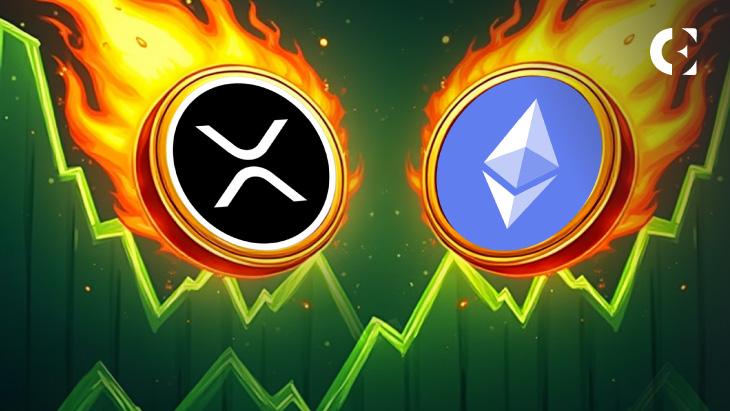“ETH and XRP Will Tax the Poor”: Pierre Rochard Slams Tokenization Thesis

Bitcoin-maxi Pierre Rochard said Ethereum and XRP cannot sustain value from securities tokenization. His remark on X, where he weighed in on whether Ethereum and XRP Ledger blockchains can improve settlement systems.
Rochard argued that the investment case for Ethereum and XRP relies on securities being issued on their networks, with transaction fees burned to benefit holders. He said this thesis is weak because of two main challenges.
The first challenge, he explained, is the role of the Depository Trust and Clearing Corporation (DTCC), which clears the majority of U.S. securities trades.
Since DTCC is a cooperative owned by its members, it has no incentive to adopt a fee-burning model. He added that exchanges such as ICE and Nasdaq already provide efficient, low-cost services, leaving little room for Ethereum or XRP to compete on fees.
Rochard also said the second major obstacle comes from competition. Because blockchain code is open source, he argued that new networks can easily emerge and drive fees down. He pointed out that the largest share of tokenized trading today happens on Tron through Tether’s USDT, not on Ethereum or XRP.
“The thesis ends up being that ETH or XRP will extract fees from the world’s poorest people, who have the least to invest,” Rochard said in his post.
Other participants pushed back on Rochard’s comments. Analyst David Simic that Ethereum’s liquidity and security act as strong deterrents against competition.
Rochard replied that security is less relevant for tokenized assets because issuers can always freeze or reverse transactions, making legal authority the ultimate point of control. “That’s why it’s not a problem that USDT has so much volume on Tron,” he said.
Simic that depending on reversals creates inefficiencies and undermines reliability, comparing it to the friction caused by credit card chargebacks. He said tokenization needs a reliable system to fulfill its purpose.
Others defended blockchain’s role in securities markets. A participant using the name Wholistic current settlement systems in traditional finance carry counterparty risks, require collateral at clearinghouses, and rely on outdated technology.
He argued that blockchain offers instant and verifiable settlement, allowing investors to hold “pristine bearer assets” that reduce systemic risk.
Rochard rejected that claim, saying settlement inefficiencies can be fixed without blockchain technology. He also maintained that tokenized securities are not the same as bearer assets such as Bitcoin.